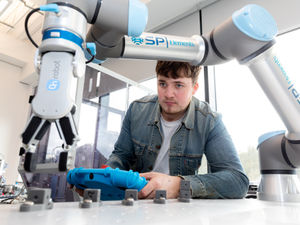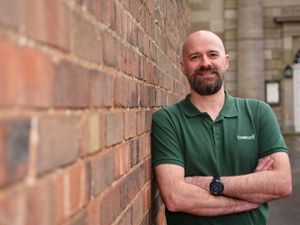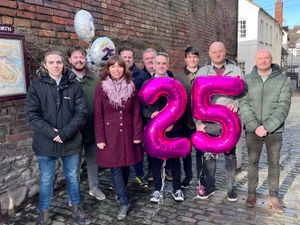PP C&A helps EYOTO eye global expansion with new outsourcing partnership
One of the UK’s leading strategic manufacturing outsourcing specialists is helping EYOTO bring new tele-optometry solutions to market.
PP Control & Automation, which works with more than 25 of the world’s largest machinery builders, is supporting the Aston University School of Optometry spin-out to build its eMap product, the world’s first edge to edge, fully digitised, remotely accessible lens analysis system.
The aim with this technology is to give global eye care companies and retailers the opportunity to bring lenses to life at the click of a button, with incredibly advanced surface inspection and full-colour power maps in just 55 seconds.
Volumes are already increasing rapidly with social distancing and Covid-19 and the new Midlands-born partnership will be crucial to helping meet global demand.
Garry Myatt, sales director at PP C&A, commented: “EYOTO had been let down badly and needed a partner they could trust to pick things up and put in place a full manufacturing line that would deliver substantial quantities within the first six months.
“Our ability to have the right skills available in engineering competence, cable preparation and creation, electro-mechanical build and assembly meant we had the majority of what we needed under one roof and then it was simply case of designing the build process.
“One of the key things we did was to invest over £150,000 into a new dedicated Electrostatic Discharge (ESD) and Complex Box Build manufacturing area specifically for eMap™ and similar products going forward.”
He continued: “This ensures that the customer requirements and legal compliance to the recognised standards are met and involved the installation of special flooring, benches and test equipment - all grounded to earth to ensure that life of the electronics is protected from potential electrostatic discharge.”
PP Control & Automation used its proven product introduction methodology to take on the eMap™ contract in a matter of weeks.
Learning ‘on the product’ was accelerated, with a joint ‘Design for Manufacturing’ exercise undertaken during the first few machine builds, quickly identifying a number of aesthetic improvements and functional changes behind the enclosure covers.
Despite little set-up time, all deadlines have been met on schedule and production improvements have been incorporated to make it easier to manufacture going forward – crucial when scaling up and targeting global retailers who demand product immediately.
The partnership has been built on transparency and trust, with any issues and faults quickly identified and overcome by tapping into the collaborative expertise of engineers and designers at both firms.
“Engaging with PP Control & Automation removed a lot of the stress we were under, as we quickly realised it would deliver on the manufacturing side of things, leaving us free to concentrate on what we do best,” explained Claire Mchaddan, vice president of product development at EYOTO.
“We went from being in a very difficult position with no manufacturing partner to meeting all of our forward production targets…better still, we now have a dedicated cell to help us scale up eMap volumes and embed future technology launches.
She continued: “This is just the start. We have a major technology roadmap in place that will involve the regular introduction of new products, especially with Covid-19 increasing the importance and need for remote ophthalmic equipment.
“We are confident that PP C&A has the capacity, skills and design for manufacture expertise to play a crucial role in all of these new product introductions.”
EYOTO is already well on the way to launching its next tele-optometry solution, this time bringing one of the eyecare sector’s most traditional pieces of equipment into the 21st century.
The first product in the tele-optometry platform will allow an eye care practitioner to conduct an eye examination from a remote location – a different room, city, or continent. It eliminates the need for an ECP to be physically present with the patient and this will be followed by a complementary pipeline of remote and mobile technology offers.
There is massive interest in this new technology and the first machines will go into production by the end of 2020.





